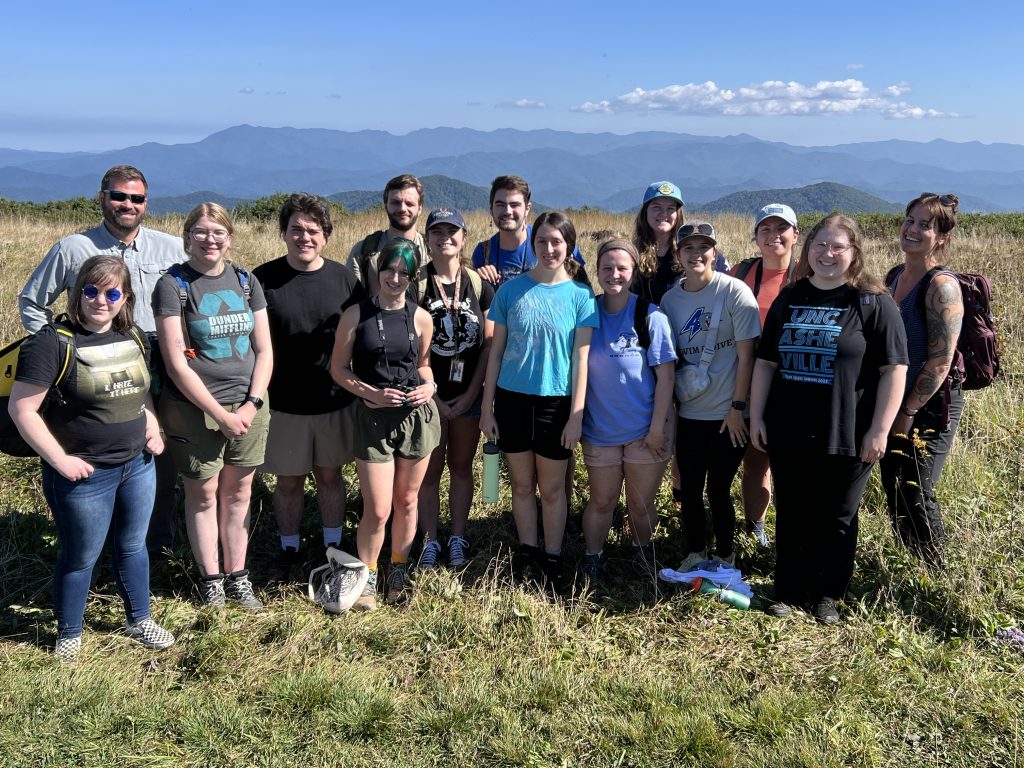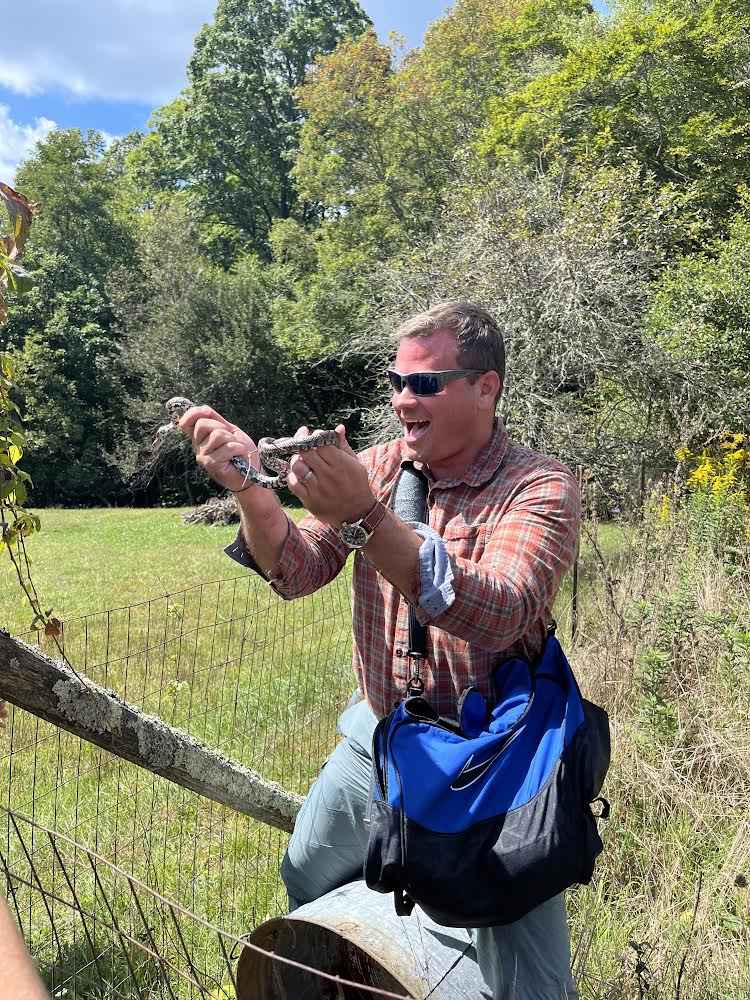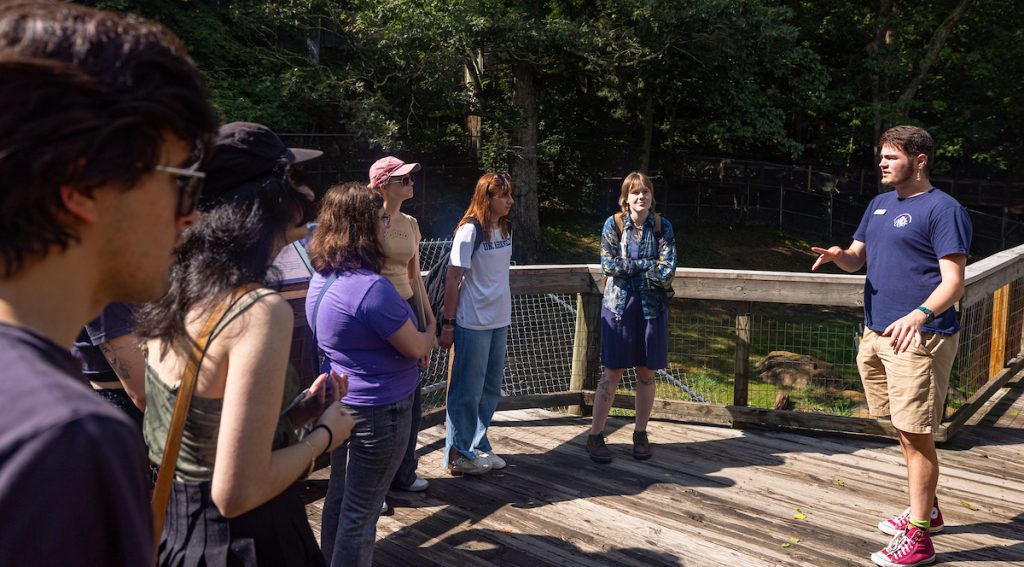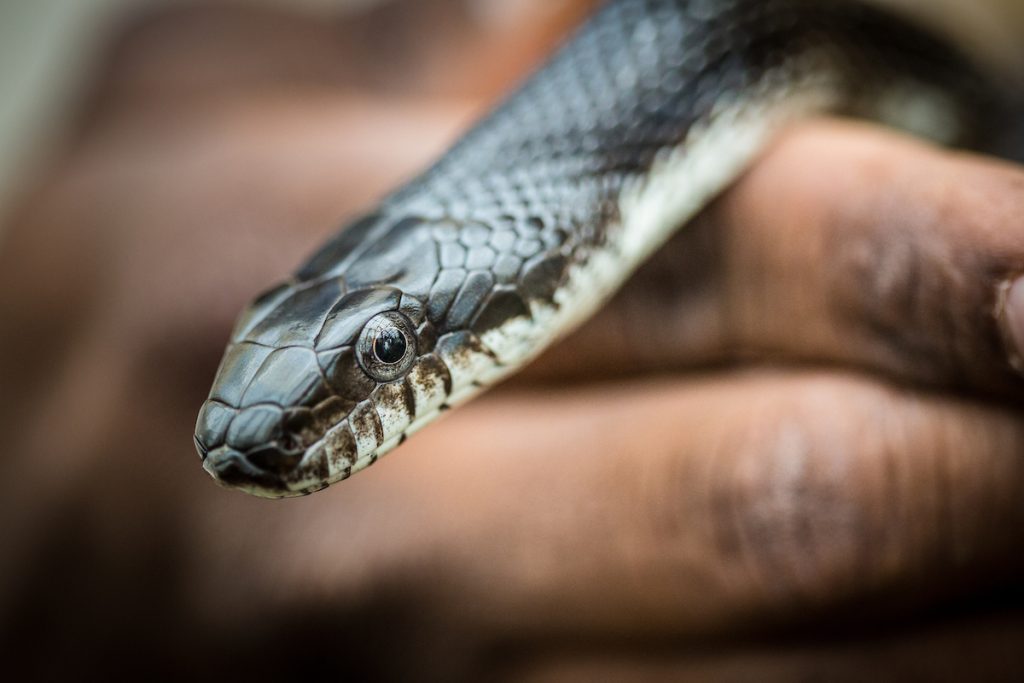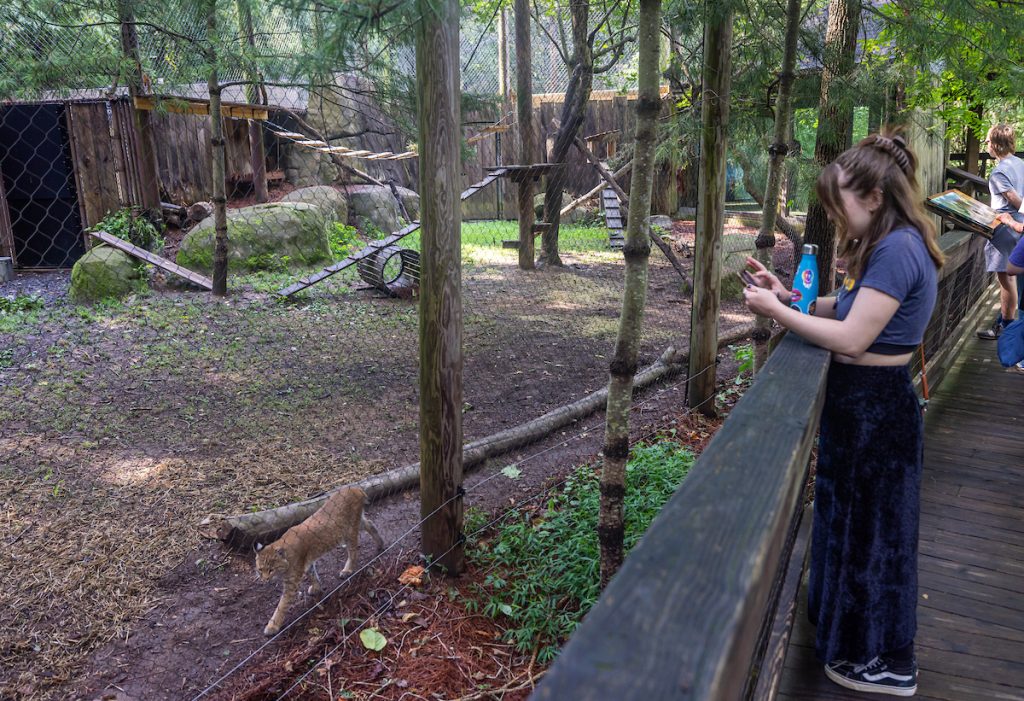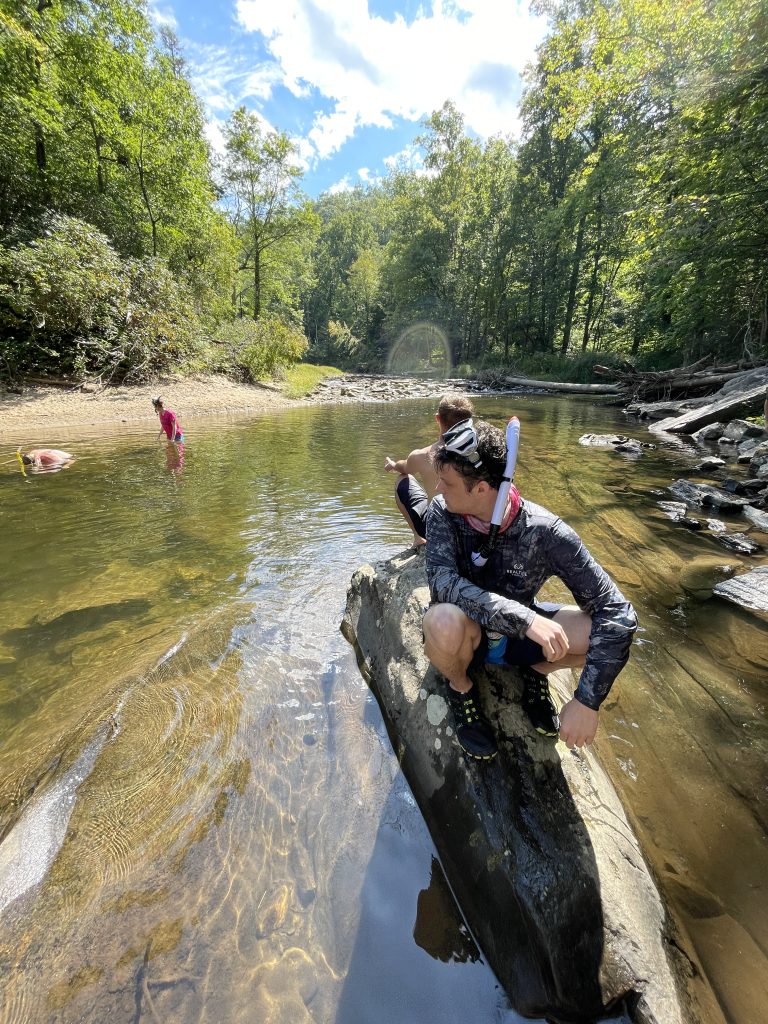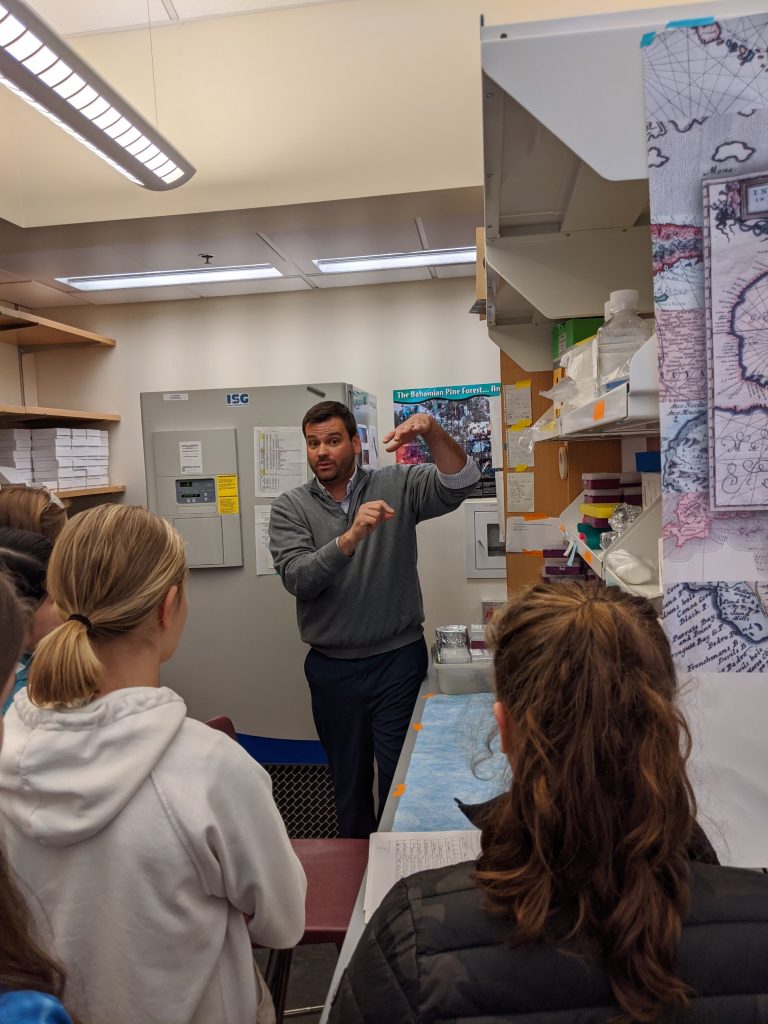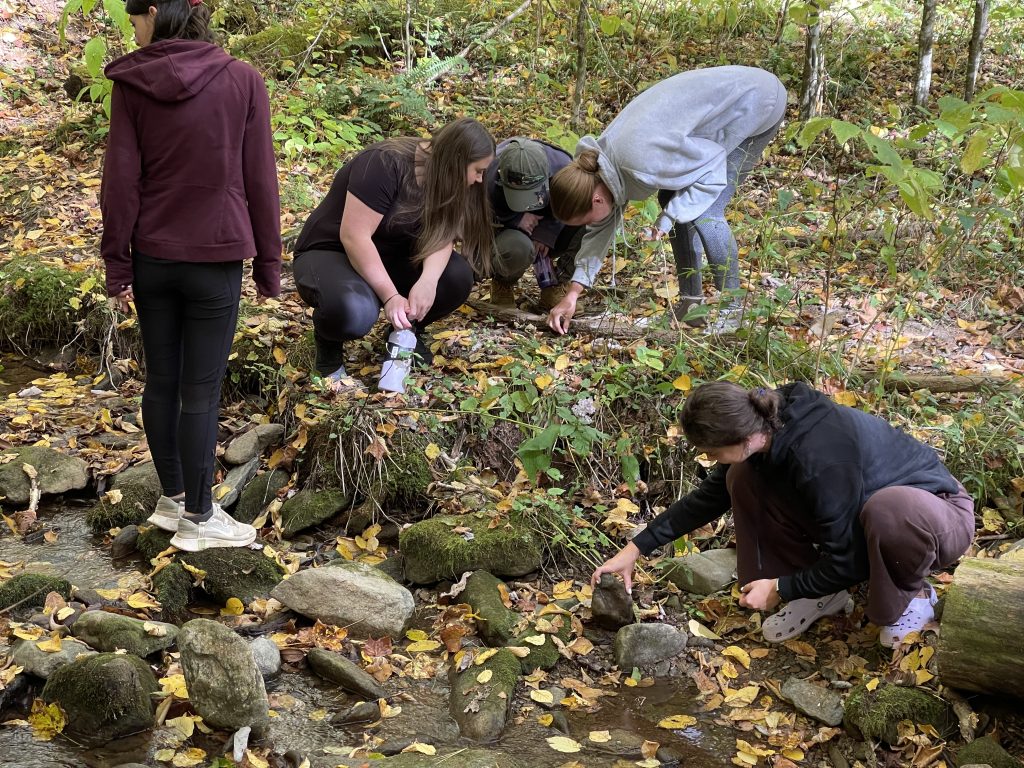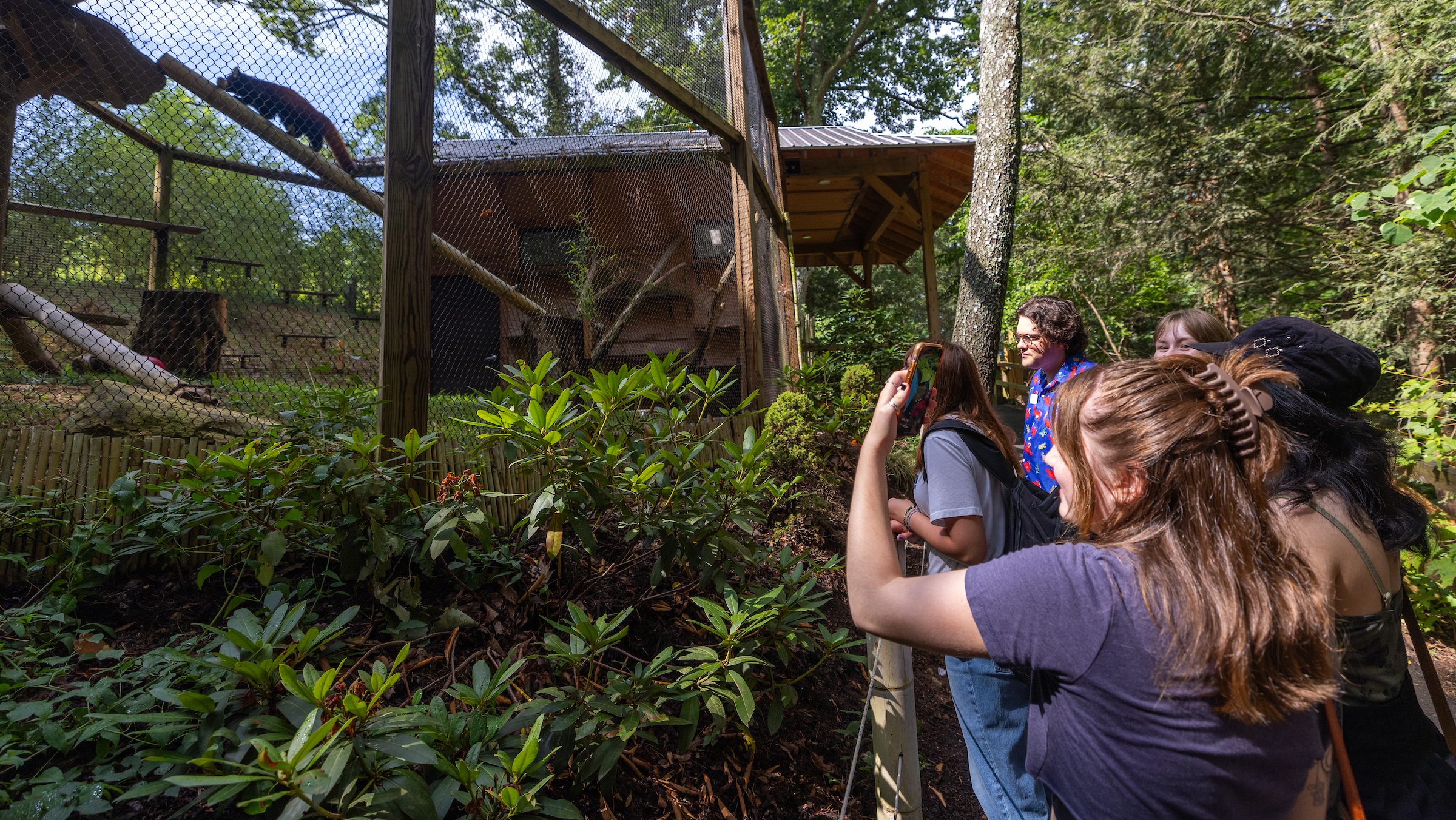
Wildlife Wonders: Appalachian Zoology
Aspiring biologists and budding naturalists will explore the rich biodiversity of the southern Appalachian Mountains through a mix of hands-on lab experiments, engaging workshops, and immersive field trips. Students will develop skills in species identification as they search for salamanders at a private nature reserve, snorkel in pristine mountain streams, and dip-net in tranquil ponds. They’ll also gain practical experience with essential zoological tools, including aquatic and insect nets, binoculars, dissecting microscopes, and compound microscopes. This program offers a unique opportunity to study local wildlife up close, including the potential to encounter a black bear or a Western North Carolina wolf, while developing the field and laboratory skills necessary for a future in biology and environmental science.
Registration opens december 2025:
- June 14 – 19, 2026
- $1,590.00
- Pre-College Programs are open to rising high school sophomores, juniors, and seniors.
- Price includes lodging, meals, all course materials, activities, and excursions
- A $500 deposit is required at the time of registration, with the remaining balance due by May 1, 2026. After that date, full payment is required at registration. Click here to see our cancellation policy.
- Students reside in campus residence hall and dine in campus dining hall
- Enrollment is open until spaces are filled
- Registration is through the Camp Doc platform. Detailed registration instructions can be found here.

- Research techniques to study zoology
- Identification of Local Wildlife
- Anatomy of Vertebrates and Invertebrates
- Wolves of WNC – Red or Gray

- The Great (water) Bear Hunt
- Field Sampling & River Snorkeling
- Invertebrate anatomy dissection lab
- Zoology Museum Collection Exploration
- Numerous field trips around WNC
Topics and schedules are subject to change
Sample Schedule:
Morning
- 8 a.m. – Breakfast
- 9 a.m. – Field sampling
- 12 p.m. – Lunch & free time
Afternoon
- 1 p.m. – The Great (water) Bear Hunt
Evening
- 5 p.m. – Dinner
- 6:30 p.m. – Activities / Recreation / Free Time
Options could include: sand volleyball, Asheville Tourists game, game night, movie - 11 p.m. – Lights out
Topics and schedules are subject to change
Meet Your Faculty

Dr. Graham Reynolds is a Professor of Biology and the Director of the University Honors Program at the University of North Carolina Asheville. He holds an appointment at Harvard University as an Associate of Herpetology in the Museum of Comparative Zoology, is a National Geographic Explorer, and is a Fellow of The Explorers Club. Dr. Reynolds earned a BA in Biology from Duke University, a PhD from The University of Tennessee, and was a Postdoctoral Fellow at Harvard University. Dr. Reynolds is a tropical biologist whose research focuses on endangered species biodiversity and new species discovery on remote islands. In his lab he uses information from DNA to understand the impact of small population size on genetic diversity, as well as relationships among species. He has traveled extensively around the world, photographing wildlife to use in his teaching lectures.
Questions? Please contact us at precollege@unca.edu.

